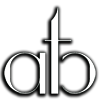Episode 431
The Myth of Science

We’ve heard the phrase “Trust the science” many times over the last couple of years. However, science is an ongoing process of inquiry. The only way it can work is if people don’t trust it, but instead subject it to reasonable scrutiny.
The greater modern myth is the concept that we don’t have the authority to learn for ourselves, to observe the world around us and form our own conclusions. If our personal observations are at odds with a peer-reviewed study, we should reject our own experience and trust a paper written by someone we have never met.
Science is more than double blind tests and peer-reviewed papers. In fact, the only way anyone can do science is by trusting their own observations and forming conclusions based on them.
Hosts & Guests
Kurt Robinson
Transcript
Welcome, beautiful thinkers. I’d like to talk to you about the myth of science. And so many people, so many of you out there are listening to this, and you’re saying, “Ah, yes, I know. I know what this is like.” So many people say, “trust the science”, which of course, is completely incongruent.
You can’t trust the science, the science is not to be trusted. Science is a process.
And science is a process of ongoing inquiry.
If you do not question science, then you’re not really engaging in science.
If you trust the science, then you are deluded about the nature of science.
People have to keep improving, people have to keep going back. But the grand myth, I think, is a cultural myth. The myth is that somehow we don’t have the right or the authority or the capability to interpret our own experiences, to observe things and draw conclusions from it.
I saw this one video. It was a scientist, perhaps a geologist or biologist. I think it was working in the outback of Australia. And he said that people come out here that graduated from university, and they won’t believe anything, unless it’s in a peer reviewed, double blind, randomized controlled trial study published in a reputable journal.
He said, That’s not science. That’s academia. That’s a different thing. It’s an aspect of science, right?
But, but it’s not the whole thing. Of course, we can exercise our own perspicacity now that idea has become so unpopular. It’s hard to believe.
It’s a kind of clown world upside down back to front, preposterous, bass ackwards conclusion: That we can’t look with our own eyes, see with our own eyes, hear with our own ears, think with our own minds and make conclusions about what we see, tentative as the hypotheses may be.
Yes, we have the right to do that. And if you think this through, for more than a couple of minutes, you’ll see that it must be true.
The only way scientists, academic research scientists, working with peer reviewed studies and these kinds of things, laboratory trials, the only way they could possibly make any process, make any progress with their process, is if they used their own eyes and they are own ears, is if they trusted themselves, to look at the world around them.
If they couldn’t, they couldn’t even interact with any of their instruments.
And people also believe that scientists are cut from a different cloth, that they are not susceptible to the same biases that we are. It’s not true. It’s not true.
There were even, well, there were these studies that were done about this. Maybe you trust them. Maybe you don’t, though, there were these certain studies.
They went around asking scientists, who were doing this kind of laboratory trials, and they asked them, “Do you sometimes when you think a conclusion is really correct, did you sometimes fudge the data to make it work?”
And some of them will say “Oh, No, no, I never do that. But you know, most of my colleagues do.”
And some of them, you know, the rare honest ones would say, “Yes, sometimes I do that.”
Because it’s like, well, they already kind of know what the conclusion should be. So they make the data fit.
And this is part of the reason why there’s such a thing as a reproducibility crisis in science.
Because sometimes we really want our hypothesis to be true.
And we try to fit the data into it.
Everybody does that every human is susceptible from that, I haven’t met any human who doesn’t have that problem.
Of course, as we develop as we focus as we meditate, we can begin to see things more clearly. And perhaps we will eventually be objective.
But in the meantime, it’s pointless to pretend, it’s a fantasy, it is a delusion.
If you think that just because somebody wears a white coat they are beyond this, that they are only true scientists, if they are beyond that. No, it’s not true.
All of us can use our eyes, our ears, all of our senses. We can smell, touch, taste, we can confirm things we can investigate, we can question our own biases. We can look at our beliefs and see if they really stack up with the evidence.
We can, we absolutely can, every one of you is capable of doing this.
It’s a practice, a discipline, and a skill, and it can be learned.
And yes, we can understand more about the world. Your experience, your intuition, your research, your knowledge, matters, it counts, it is valid.
It’s not always completely correct, but it is valid, and it can be useful. So please, thank you.
Go ahead, learn more about the world and find out what it all means.

New Episodes Every Weekday
11am Mexico City time
10 min episodes Monday - Thursday
1 h interview episode on Fridays
As an Amazon Associate I earn from qualifying purchases.
Stay Beautiful &
Stay Connected
